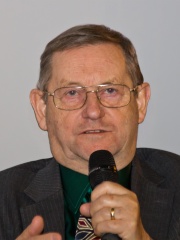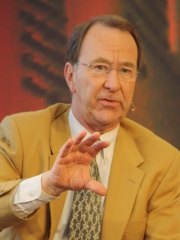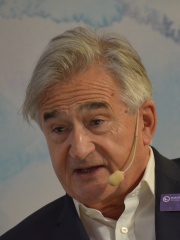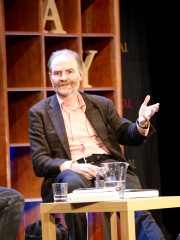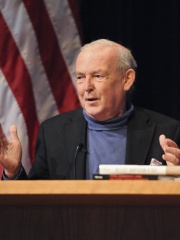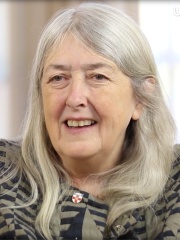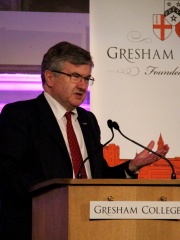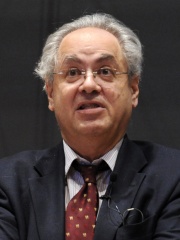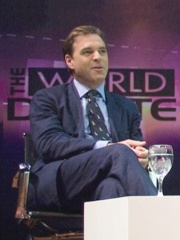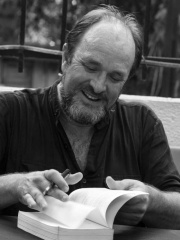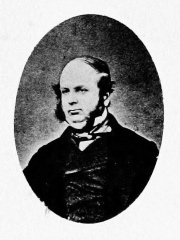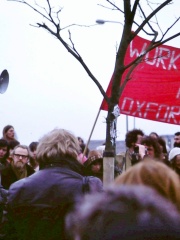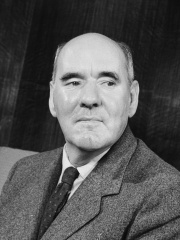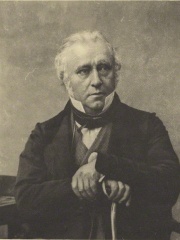
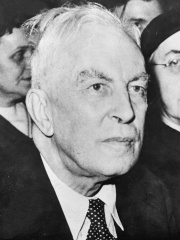

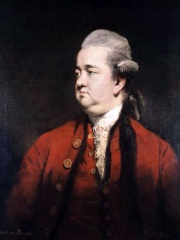
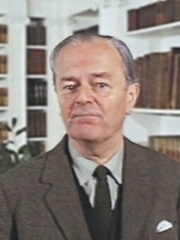
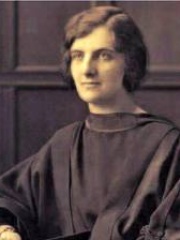
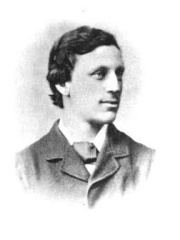
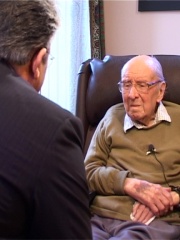
The Most Famous
HISTORIANS from United Kingdom
This page contains a list of the greatest British Historians. The pantheon dataset contains 561 Historians, 81 of which were born in United Kingdom. This makes United Kingdom the birth place of the most number of Historians.
Top 10
The following people are considered by Pantheon to be the top 10 most legendary British Historians of all time. This list of famous British Historians is sorted by HPI (Historical Popularity Index), a metric that aggregates information on a biography's online popularity. Visit the rankings page to view the entire list of British Historians.

1. Thomas Babington Macaulay (1800 - 1859)
With an HPI of 76.29, Thomas Babington Macaulay is the most famous British Historian. His biography has been translated into 48 different languages on wikipedia.
Thomas Babington Macaulay, 1st Baron Macaulay, (; 25 October 1800 – 28 December 1859) was a British historian, poet and Whig politician who served as the Secretary at War between 1839 and 1841, and as the Paymaster General between 1846 and 1848. He is best known for his The History of England, a seminal example of Whig history which expressed Macaulay's belief in the inevitability of sociopolitical progress and has been widely commended for its prose style. Macaulay also played a substantial role in determining India's education policy.

2. Arnold J. Toynbee (1889 - 1975)
With an HPI of 74.78, Arnold J. Toynbee is the 2nd most famous British Historian. His biography has been translated into 58 different languages.
Arnold Joseph Toynbee (; 14 April 1889 – 22 October 1975) was an English historian, a philosopher of history, an author of numerous books and a research professor of international history at the London School of Economics and King's College London. From 1918 to 1950, Toynbee was considered a leading specialist on international affairs; from 1929 to 1956 he was the Director of Studies at Chatham House, in which position he also produced 34 volumes of the Survey of International Affairs, a "bible" for international specialists in Britain. He is best known for his 12-volume A Study of History (1934–1961). With his prodigious output of papers, articles, speeches and presentations, and numerous books translated into many languages, Toynbee was widely read and discussed in the 1940s and 1950s.

3. Bede (672 - 735)
With an HPI of 74.70, Bede is the 3rd most famous British Historian. His biography has been translated into 68 different languages.
Bede (; Old English: Bēda [ˈbeːdɑ]; 672/3 – 26 May 735), also known as Saint Bede, Bede of Jarrow, the Venerable Bede, and Bede the Venerable (Latin: Beda Venerabilis), was an English monk, author and scholar. He was one of the most known writers during the Early Middle Ages, and his most famous work, Ecclesiastical History of the English People, gained him the title "The Father of English History". He served at the monastery of St Peter and its companion monastery of St Paul in the Kingdom of Northumbria of the Angles. Born on lands belonging to the twin monastery of Monkwearmouth–Jarrow in present-day Tyne and Wear, England, Bede was sent to Monkwearmouth at the age of seven and later joined Abbot Ceolfrith at Jarrow. Both of them survived a plague that struck in 686 and killed the majority of the population there. While Bede spent most of his life in the monastery, he travelled to several abbeys and monasteries across the British Isles, even visiting the archbishop of York and King Ceolwulf of Northumbria. His theological writings were extensive and included a number of Biblical commentaries and other works of exegesis. Another important area of study for Bede was the academic discipline of computus, otherwise known to his contemporaries as the science of calculating calendar dates. One of the more important dates Bede tried to compute was Easter, an effort that was mired in controversy. He also helped to popularise the practice of dating forward from the birth of Christ (Anno Domini—in the year of our Lord), a practice which eventually became commonplace in medieval Europe. He is considered by many historians to be the most important scholar of antiquity for the period between the death of Pope Gregory I in 604 and the coronation of Charlemagne in 800. In 1899, Pope Leo XIII declared him a Doctor of the Church. He is the first native of Great Britain to achieve this designation. Bede was moreover a skilled linguist and translator, and his work made the Greek and Latin writings of the early Church Fathers much more accessible to his fellow Anglo-Saxons, which contributed significantly to English Christianity. Bede's monastery had access to a library that included works by Eusebius, Orosius, and many others.

4. Edward Gibbon (1737 - 1794)
With an HPI of 74.44, Edward Gibbon is the 4th most famous British Historian. His biography has been translated into 75 different languages.
Edward Gibbon (; 8 May 1737 – 16 January 1794) was a British essayist, historian and politician. His most important work, The History of the Decline and Fall of the Roman Empire, published in six volumes between 1776 and 1789, is known for the quality and irony of its prose, its use of primary sources, and its polemical criticism of organized religion.
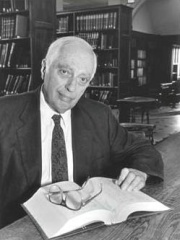
5. Bernard Lewis (1916 - 2018)
With an HPI of 69.41, Bernard Lewis is the 5th most famous British Historian. His biography has been translated into 41 different languages.
Bernard Lewis, (31 May 1916 – 19 May 2018) was a British-American historian specialized in Oriental studies. He was also known as a public intellectual and political commentator. Lewis was the Cleveland E. Dodge Professor Emeritus of Near Eastern Studies at Princeton University. Lewis's expertise was in the history of Islam and the interaction between Islam and the West. Lewis served as a soldier in the British Army in the Royal Armoured Corps and Intelligence Corps during the Second World War before being seconded to the Foreign Office. After the war, he returned to the School of Oriental and African Studies at the University of London and was appointed to the new chair in Near and Middle Eastern history. In 2007, Lewis was called "the West's leading interpreter of the Middle East". Others have said Lewis's approach is essentialist and generalizing to the Muslim world, as well as his tendency to restate hypotheses that were challenged by more recent research. On a political level, Lewis's detractors say he revived the image of the cultural inferiority of Islam and of emphasizing the dangers of jihad. His advice was frequently sought by neoconservative policymakers, including the Bush administration. His active support of the Iraq War and neoconservative ideals have since come under scrutiny. Lewis was notable for his public debates with Edward Said, who said Lewis was a Zionist apologist and an Orientalist who "demeaned" Arabs, misrepresented Islam, and promoted Western imperialism, to which Lewis responded by saying Orientalism was a facet of humanism and that Said was politicizing the subject. Lewis was also known for denying the Armenian Genocide. His argument that there was no evidence of a deliberate genocide carried out against the Armenian people by the Ottoman Empire is rejected by other historians. He said that the mass killings resulted from a mutual struggle between two nationalistic movements, a view that has been criticized as "ahistorical."

6. Kenneth Clark (1903 - 1983)
With an HPI of 68.36, Kenneth Clark is the 6th most famous British Historian. His biography has been translated into 29 different languages.
Kenneth Mackenzie Clark, Baron Clark (13 July 1903 – 21 May 1983) was a British art historian, museum director and broadcaster. His expertise covered a wide range of artists and periods, but he is particularly associated with Italian Renaissance art, most of all that of Leonardo da Vinci. After running two art galleries in the 1930s and 1940s, he came to wider public notice on television, presenting a succession of programmes on the arts from the 1950s to the 1970s, the largest and best known being the Civilisation series in 1969. The son of rich parents, Clark was introduced to the arts at an early age. Among his early influences were the writings of John Ruskin, which instilled in him the belief that everyone should have access to great art. After coming under the influence of the art experts Bernard Berenson and Roger Fry, Clark was appointed director of the Ashmolean Museum in Oxford aged twenty-seven, and three years later he was put in charge of Britain's National Gallery. His twelve years there saw the gallery transformed to make it accessible and inviting to a wider public. During the Second World War, when the collection was moved from London for safe keeping, Clark made the building available for a series of daily concerts which proved a celebrated morale booster during the Blitz. After the war, and three years as Slade Professor of Fine Art at Oxford, Clark surprised many by accepting the chairmanship of the UK's first commercial television network. Once the service had been successfully launched he agreed to write and present programmes about the arts. These established him as a household name in Britain, and he was asked to create the first colour series about the arts, Civilisation, first broadcast in 1969 in Britain and in many other countries soon afterwards. Among many honours, Clark was knighted at the unusually young age of thirty-five, and three decades later was made a life peer shortly before the first transmission of Civilisation. Three decades after his death, Clark was celebrated in an exhibition at Tate Britain in London, prompting a reappraisal of his career by a new generation of critics and historians. Opinions varied about his aesthetic judgement, particularly in attributing paintings to old masters, but his skill as a writer and his enthusiasm for popularising the arts were widely recognised. Both the BBC and the Tate described him in retrospect as one of the most influential figures in British art of the twentieth century.

7. Frances Yates (1899 - 1981)
With an HPI of 65.54, Frances Yates is the 7th most famous British Historian. Her biography has been translated into 21 different languages.
Dame Frances Amelia Yates (28 November 1899 – 29 September 1981) was an English historian of the Renaissance, who wrote books on the history of esotericism. After attaining an MA in French at University College London, she began to publish her research in scholarly journals and academic books, focusing on 16th-century theatre and the life of the linguist and lexicographer John Florio. In 1941, she was employed by the Warburg Institute in London, and began to work on what she termed "Warburgian history", emphasising a pan-European and inter-disciplinary approach to historiography. Her most acclaimed publication was Giordano Bruno and the Hermetic Tradition (1964), in which she emphasised the role of Hermeticism in Bruno's works and the role that magic and mysticism played in Renaissance thinking. The Art of Memory (1966), and The Rosicrucian Enlightenment (1972) are also major works. Yates wrote extensively on the occult or Neoplatonic philosophies of the Renaissance, which she is credited with making more accessible.

8. Arnold Toynbee (1852 - 1883)
With an HPI of 65.45, Arnold Toynbee is the 8th most famous British Historian. His biography has been translated into 22 different languages.
Arnold Toynbee (; 23 August 1852 – 9 March 1883) was an English economic historian also noted for his social commitment and desire to improve the living conditions of the working classes. Toynbee Hall in London was named in his honour.

9. W. Montgomery Watt (1909 - 2006)
With an HPI of 65.25, W. Montgomery Watt is the 9th most famous British Historian. His biography has been translated into 23 different languages.
William Montgomery Watt (14 March 1909 – 24 October 2006) was a Scottish historian and orientalist. An Anglican priest, Watt served as Professor of Arabic and Islamic Studies at the University of Edinburgh from 1964 to 1979 and was also a prominent contributor to the field of Quranic studies. Watt was one of the foremost non-Muslim interpreters of Islam in the West. Watt's comprehensive biography of the Islamic prophet Muhammad, Muhammad at Mecca (1953) and Muhammad at Medina (1956), are considered to be classics in the field.
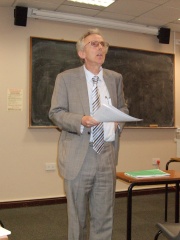
10. Peter Burke (b. 1937)
With an HPI of 65.02, Peter Burke is the 10th most famous British Historian. His biography has been translated into 21 different languages.
Ulick Peter Burke (born 16 August 1937) is a British polymath, historian and professor. He was born to a Roman Catholic father and Jewish mother (who later converted to Roman Catholicism). He was educated at St Ignatius College, Enfield, a Jesuit school, before completing his undergraduate and doctoral studies at St John's College and St Antony's College, University of Oxford. From 1962 to 1979, he was a member of the School of European Studies at University of Sussex, before moving to the University of Cambridge, where he holds the title of professor emeritus of cultural history and fellow of Emmanuel College, Cambridge. Burke is celebrated as a historian not only of the early modern era, but one who emphasizes the relevance of social and cultural history to modern issues. He is married to the Brazilian historian Maria Lúcia Garcia Pallares-Burke who is the author of two books (in one of which she collaborated with her husband). Burke is not only known for his work on the Modern Age but also for his research on cultural history across its entire spectrum. As a polyglot, he has managed on the one hand to incorporate information from a good part of Europe and has also achieved good diffusion of his books. They have been translated into more than thirty languages. In 1998, he was awarded the Erasmus Medal of the European Academy, and is an honorary doctorate from the Universities of Lund, Copenhagen and Bucharest.
People
Pantheon has 81 people classified as British historians born between 672 and 1971. Of these 81, 28 (34.57%) of them are still alive today. The most famous living British historians include Peter Burke, Norman Davies, and Ian Kershaw. The most famous deceased British historians include Thomas Babington Macaulay, Arnold J. Toynbee, and Bede. As of April 2024, 2 new British historians have been added to Pantheon including Adam Tooze, and Peter Frankopan.
Living British Historians
Go to all RankingsPeter Burke
1937 - Present
HPI: 65.02
Norman Davies
1939 - Present
HPI: 62.91
Ian Kershaw
1943 - Present
HPI: 62.63
Antony Beevor
1946 - Present
HPI: 62.52
Timothy Garton Ash
1955 - Present
HPI: 59.66
Quentin Skinner
1940 - Present
HPI: 59.29
Paul Kennedy
1945 - Present
HPI: 59.08
Mary Beard
1955 - Present
HPI: 55.02
Richard J. Evans
1947 - Present
HPI: 54.83
David Abulafia
1949 - Present
HPI: 54.62
Niall Ferguson
1964 - Present
HPI: 54.56
William Dalrymple
1965 - Present
HPI: 54.29
Deceased British Historians
Go to all RankingsThomas Babington Macaulay
1800 - 1859
HPI: 76.29
Arnold J. Toynbee
1889 - 1975
HPI: 74.78
Bede
672 - 735
HPI: 74.70
Edward Gibbon
1737 - 1794
HPI: 74.44
Bernard Lewis
1916 - 2018
HPI: 69.41
Kenneth Clark
1903 - 1983
HPI: 68.36
Frances Yates
1899 - 1981
HPI: 65.54
Arnold Toynbee
1852 - 1883
HPI: 65.45
W. Montgomery Watt
1909 - 2006
HPI: 65.25
Henry Thomas Buckle
1821 - 1862
HPI: 63.46
E. P. Thompson
1924 - 1993
HPI: 62.73
C. Northcote Parkinson
1909 - 1993
HPI: 62.67
Newly Added British Historians (2025)
Go to all RankingsOverlapping Lives
Which Historians were alive at the same time? This visualization shows the lifespans of the 25 most globally memorable Historians since 1700.

